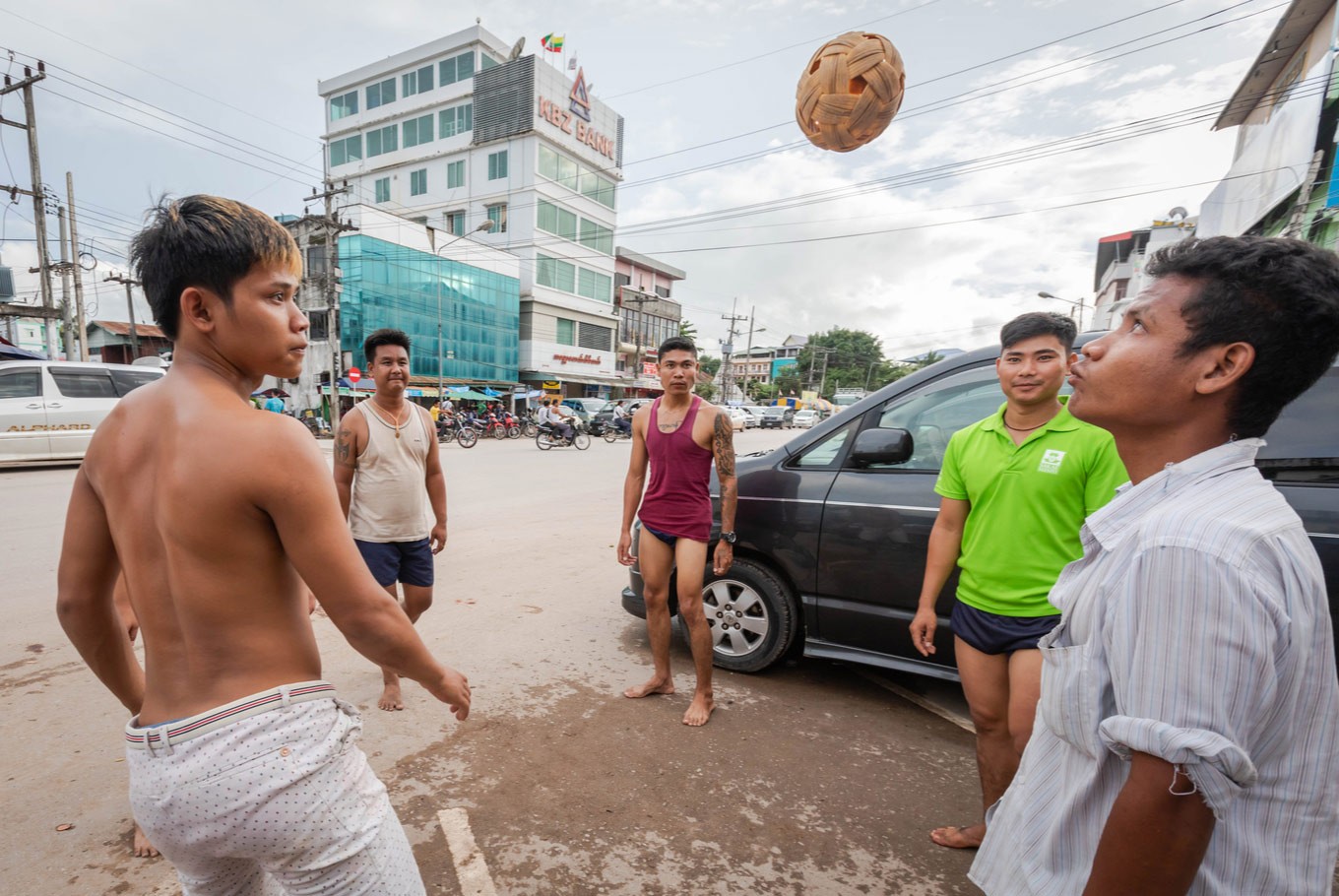Popular Reads
Top Results
Can't find what you're looking for?
View all search resultsPopular Reads
Top Results
Can't find what you're looking for?
View all search resultsEngaging youth in Indonesia, Myanmar
There are three main barriers faced by the youth movement in Myanmar:
Change text size
Gift Premium Articles
to Anyone
T
oday’s generation of youth is the largest ever to exist globally. Young people often form the largest demographic in countries affected by armed conflict.
Myanmar has been ruled by a military regime for more than half a century and has recently been in the international spotlight.
In 2010, a new quasi-civilian government took power and initiated developments by establishing political, economic, and administrative reforms. Deep-rooted challenges were inherited leading to intensified fighting between armed forces and ethnic armed groups in several regions, which often resulted in abuses against civilians. The United Nations termed operations against the Rohingya minority living in the Rakhine state as a “textbook ethnic cleansing”.
In March 2018, I traveled to the former capital city, Yangon, for a graduate research thesis project focusing on youth civic participation in the country. Little spotlight has been shed on the young people who make up more than 55 percent of the country.
In Myanmar’s history, youth have been involved in politics through social groups working to sustain peace. However they often face obstacles in participating in development and peacebuilding processes. There are three main barriers faced by the youth movement in Myanmar:
First is the transitional democracy. As Myanmar moves towards democracy, the increasingly complex environment has led to the stalling of reforms, as well as that of the peace process. While youth in Myanmar are increasingly involved in community and national efforts to sustain peace, they continue to face challenges in participating in peace and development processes at local, regional and national levels.
Young people may be less likely to organize due to general mistrust in authorities or fear of a political and legal system that has yet to provide full political and civil rights. As late as in 2014, student protesters demanding a say in education reform were met with police repression and arrests. Finding a platform on which to operate within already limited space for civil society can be challenging for young people just starting to become active in advocacy.
Second is the urban-rural divide. Local civil society organizations focus attention and efforts where there is the least amount of accessibility, thereby focusing most on Myanmar’s rural youth.
However, efforts to actively mobilize and engage urban youth remain limited. This gap must be addressed to foster communication and the understanding among youth in urban and rural areas. The urban youth must be informed and educated, to understand that no matter where the issues are taking place in the country, this is their problem as well.
The total youth population in Indonesia is also unevenly distributed across the nation. Data shows youth are more concentrated in urban areas. Big cities like Jakarta, Bandung and Yogyakarta have higher shares of youth as reflected in the higher activism and civic participation involving youth in these areas. This shows how mostly migration of information relies heavily on location as well.
Third is the misinformation. Given how malleable the youth are, the rise of social media as the only “credible” source of information is also an added challenge in youth civic engagement. With a plethora of information is suddenly available and more easily accessible in a country, the problem of identifying real information versus propaganda or hate speech becomes an important issue.
This makes it easier for youth to be influenced in the negative direction when they go back to their communities. With about 25 percent of the population in Myanmar having access to phones, 95 percent of them use Facebook as their source of information.
There is, however, an increasing trend of verification groups on social media platforms such as Facebook, with people not just from Myanmar, but from all over the world, as an effort to filter information through various channels. There have also been efforts to use mobile phone technology, through the creation of apps as tools to better inform people, such as the Open Parliament App which provides people a direct way of engaging with representatives. However, the extent of use and its impact remains to be seen.
Research by Pew stated Indonesia is the top five countries in which citizens aged 18-24 are more likely to use the internet and own a smartphone compared with people ages 35 and older. However, nefarious actors use social media to spread hate speech in the hopes of gaining politicians’ attention.
So how can both Indonesia and Myanmar which despite many differences share similarities of their youth, move towards better civic participation, a more evenly distributed opportunity for the youth, and information filters that are both credible and accountable?
Stronger measures are needed to effectively harness the youth in the countries and actively engage them in the development of their own communities.
This means moving from fixing problems to building on strengths; from reacting to risky behavior to proactively building on positive outcomes; from targeting marginalized youth to engaging all youth; and from regarding youth as a recipient of a certain service to treating youth as resources and active partners.
***
Isabella Veronica Silalahi is a recent graduate in the Master of International Affairs at the George Washington University. She is now working as a Partnerships Analyst in the United Nations Office of Project Services in Washington DC. Bella is also active in youth development, digital activism and occasional traveler.










